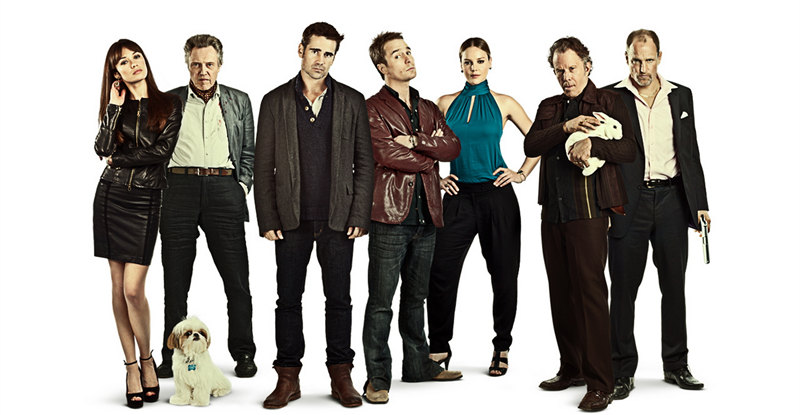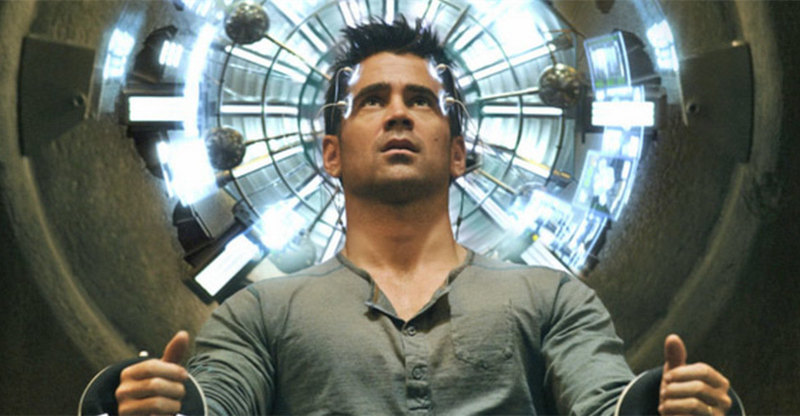As much as I admire Tim Burton’s remake of the story, I prefer this original 1971 production, “Willy Wonka and the Chocolate Factory” with Gene Wilder, for its sweeter nature and more amiable songs. So I rejoiced when Warner Bros. chose to transfer it to Blu-ray in a deluxe Blu-ray Book edition. Good things just get better.
Years ago I read a review of “Willy Wonka” that said it was the kind of movie parents love to drag their kids to and then both of them, kids and parents, get bored. I doubt it. I never met anyone personally who didn’t like this children’s fantasy, youngsters or adults. In fact, it may be the sort of children’s film that is as much or more appreciated by older teens and adults as by youngsters.
A while back a student in one of my junior English classes mentioned aloud, for reasons I can’t remember, the Oompa-Loompas, and everyone in the room recognized and seemed to appreciate the little people from the story. In the last few decades the movie has come to be officially institutionalized in our society, like “Snow White” and “Bambi.” It is, in fact, a modern classic, and it made sense for WB to issue it along with the Burton version in high def.
The structure of “Willy Wonka” is much the same as “The Wizard of Oz.” A child goes on a magical journey filled with laughter, adventure, fantasy, and song and learns a valuable lesson along the way. Children’s writer Roald Dahl (“James and the Giant Peach,” “The Witches”) adapted the 1971 screenplay from his own book, “Charlie and the Chocolate Factory,” and Mel Stuart (“If It’s Tuesday, This Must Be Belgium,” “One Is a Lonely Number”) directed the film. Dahl was always a writer with more than children in mind, which is why “Willy Wonka” is so bizarre and entertaining for adults.
The film stars Gene Wilder as the world’s greatest chocolate maker, a mysterious figure who long ago locked himself in his factory and hasn’t been seen since. But for reasons that only become clear at the end of the movie, he decides to hold a contest to open up his plant to a few lucky people. Inside five Wonka Bars he has hidden Golden Tickets worth a trip inside his immense candy factory, plus a lifetime supply of chocolate. The world goes nuts trying to find the prize tickets.
The first person to strike gold is young Augustus Gloop (Michael Bollner), a greedy, gluttonous, spoiled little German boy who is always eating. The second person to find a ticket is Veruca Salt (Julie Dawn Cole), a rich, spoiled, selfish, nasty brat. The third person is Violet Beauregarde (Denise Nickerson), a pushy, spoiled, bad-mannered child who holds the world’s record for chewing the same piece of gum. The fourth is Mike Teevee (Paris Themmen), a rude, spoiled smart aleck, who watches television all day long. And the fifth winner is our hero, Charlie Bucket (Peter Ostrum), an honest, helpful, loving, hardworking lad.
The first third of the film takes us through the events leading up to the kids’ entrance into the candy factory, and that’s the part of the film I’ve always enjoyed the most. Charlie is so poor he lives in a one-room shack with his mother and both pairs of grandparents. The four grandparents occupy a single bed that they haven’t gotten out of in years.
When Charlie wins his prize, he’s allowed to take one person with him and he chooses his Grandpa Joe (Jack Albertson). Joe is not only his grandfather, he’s Charlie’s best friend and supporter: “Don’t worry, Charlie, you’ll find a Golden Ticket,” he says, never giving up hope for his grandson.
The film never reveals its setting, but it’s clearly a storybook town. The actual location shots were done in Munich, the city’s gas works filling in for the chocolate factory.
Once inside the factory, Mr. Wonka is anything but what we expect, and Wilder has a field day playing a character we sometimes think has a screw loose. His utter composure as each child is devilishly dispatched–one going up a chocolate flue, a second down a “bad egg” sorter, another turned into a giant blueberry, and yet a fourth disintegrating into television atoms–is a joy.
Finally, there are the songs, with lyrics and music by Leslie Bricusse and Anthony Newley: “The Candy Man,” “Cheer Up, Charlie,” “I’ve Got a Golden Ticket,” “Pure Imagination,” “Oompa-Loompa-Doompa-De-Do,” and “I Want It Now.”
Not all of the film works, mind you; I’ve never been too keen on the mother’s number, for instance, or the fact that the mother disappears from the picture so early on. Nor does all of the picture gel well, some of it even seeming mean-spirited, although it isn’t meant to be. Yet, who can deny that the film’s overall intention is positive, playful fun.
The film is a joy.
Video:
The Warner video engineers use a VC-1 encode and a single-layer BD25 to transfer the movie to Blu-ray disc in something close to its 1.85:1 theatrical-release dimensions, filling up a 1.78:1 widescreen TV quite nicely. The colors in high definition are deep and rich, with the kind of object delineation we figure on. Note Charlie’s red sweater and red scarf, for example, how strong and clean the colors are and how well textured; or the Candy Man’s red-white-and-blue striped shirt or the various checkered jackets worn in the film and how well they maintain their lines, without a shimmer in sight. It’s another of the benefits of high definition that it practically eliminates those pesky moiré effects, the wavy interference patterns during motion shots of closely spaced vertical and horizontal lines. There is also a fine layer of grain, inherent, no doubt, to the original print, but hardly any age flaws.
Be aware, however, that Warners did not restore the movie frame-by-frame as they did “The Wizard of Oz.” Certainly, they cleaned up the best available print, but depending on the size of your screen and how close you sit to it, you may notice minor imperfections. It comes with the territory.
Audio:
As on WB’s previous editions of the movie, the new Dolby TrueHD 5.1 audio does not do a lot with the rear channels, but the overall sound is firmer and fuller than either the standard disc’s Dolby Digital or the HD DVD’s Dolby Digital Plus. The sound is still just a tad bright and edgy to me in places, particularly in the musical interludes, and the frequency extremes and the dynamics are a mite limited. Well, the movie goes all the way back to 1971, after all, and it didn’t have the advantage of today’s best digital recording techniques. Still, the lossless TrueHD sounds fine.
Extras:
The special features on the disc are taken directly from the previous standard-definition and HD DVD set. The first item is a feature-length audio commentary with the five Wonka kids, now grown up–Peter Ostrum, Julie Dawn Cole, Denise Nickerson, Pris Themmen, and Michael Bollner. It’s a delight to hear about the filmmaking process from the perspective of these adults looking back on their childhood experiences. With time constraints as they are, I seldom find the chance (or have the desire) to listen all the way through an audio commentary, but when I first got the standard-definition DVD, I did listen to this one and found it highly entertaining and rewarding.
Then, there’s a thirty-minute documentary, “Pure Imagination: The Story of Willy Wonka & the Chocolate Factory,” that includes interviews with Gene Wilder and the other stars of the film, its director, producer, cowriter, even one of the Oompa-Loompa actors. Among other things, they tell us the film was purposely made for adults, so maybe that explains why it doesn’t play down to kids. Also, we are told that the Quaker Oats Company put up the money to make the film, hoping to bring out a Wonka chocolate bar at the time of the film’s release. That’s why the film’s title was changed from “Charlie and the Chocolate Factory” to “Willy Wonka & the Chocolate Factory.” Something went wrong with the candy bar idea and it never caught on. However, after a disappointing start, the film itself did catch on and grew into a classic.
Following the documentary, there are four sing-along songs with printed lyrics on screen: “Golden Ticket,” “Pure Imagination,” “I Want It Now,” and “Oompa-Loompa-Doompa-De-Do.” To wrap things up, there’s a 1971 behind-the-scenes featurette, lasting about four minutes; forty scene selections; a widescreen theatrical trailer; English, French, Spanish, German, Italian, and Portuguese spoken languages; French, Spanish, Danish Dutch, Finnish, Italian, Norwegian, Portuguese, and Swedish subtitles; and English and German captions for the hearing impaired.
Warner Bros. package the whole thing in one of their fancy Blu-ray Books, a beautiful hardbound book containing thirty-eight pages of color pictures and text on the film, with a plastic Digipak fastener on the inside back cover to house the disc. It is packaging worthy of the movie.
Parting Thoughts:
“Willy Wonka & the Chocolate Factory” is great family entertainment, colorful and playful for kids, sophisticated and witty for adults. As creative as Tim Burton’s remake is, I prefer the greater warmth of this original version. The movie is filled with good humor, good acting, especially from Wilder and Albertson, and good songs. It’s a little drippy at times, yes, but it’s just off kilter enough to keep everyone’s attention. It’s a fun film, made all the better in Blu-ray high-definition picture and sound.


